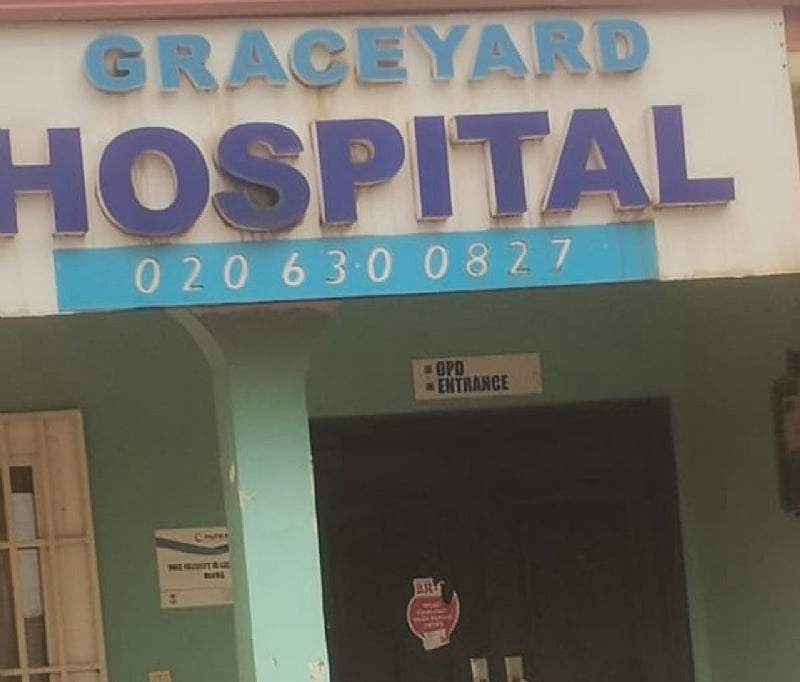This case revolves around a tragic incident of alleged medical negligence resulting in the death of a young mother, Naomi Okyere, during childbirth. Clement Frimpong, the grieving husband and father, has initiated legal proceedings against Dr. Clement Oppong and his private hospital, Graceyard Hospital, seeking substantial damages and demanding accountability for the loss of his wife and the future care of their three children. Frimpong’s claim centers on the assertion that Dr. Oppong, driven by financial gain, persuaded Naomi to deliver at his inadequately equipped private facility despite overseeing her antenatal care at a public hospital. The subsequent complications and delayed transfer to a higher-level medical institution ultimately led to Naomi’s untimely demise.
The lawsuit, filed at the High Court in Gbetsile, paints a picture of systematic negligence and professional misconduct on the part of Dr. Oppong. Frimpong alleges that Dr. Oppong, after convincing Naomi to transfer to his private clinic with the promise of superior care, failed to provide the necessary medical interventions when complications arose following a Cesarean section. Despite Naomi’s rapidly deteriorating condition due to severe anemia, Dr. Oppong allegedly persisted with repeated blood transfusions without investigating the underlying cause of the bleeding or promptly transferring her to a facility equipped to handle such a critical situation. This delay, Frimpong argues, directly contributed to Naomi’s death.
The sequence of events outlined in the lawsuit highlights the critical timeframe during which Naomi’s condition worsened. Admitted to Graceyard Hospital on November 7, 2024, she underwent a C-section the next day. Over the following four days, her condition deteriorated alarmingly, yet she remained at Graceyard Hospital despite the escalating severity of her anemia. It was only on November 12, 2024, that she was finally transferred to Korle-Bu Teaching Hospital, a major referral center in Accra. Tragically, she succumbed to her condition just six hours after arrival. The death certificate cites severe anemia and internal bleeding following the C-section as the primary contributing factors to her death, further strengthening Frimpong’s allegations of negligence.
Frimpong’s legal action seeks not only financial redress for the loss of his wife and the ongoing care of their children but also aims to hold Dr. Oppong and Graceyard Hospital accountable for their alleged negligence. He is claiming GH₵2 million in damages, with GH₵1.5 million allocated for wrongful death, loss of support, and the emotional trauma he and his children have endured. The remaining GH₵500,000 is designated to cover the future care and upbringing of his three children, including the infant born shortly before Naomi’s death. This substantial claim underscores the devastating impact of Naomi’s death on her family’s present and future.
Beyond monetary compensation, Frimpong is pursuing broader regulatory action to prevent further tragedies. He calls for the Medical and Dental Council to revoke Dr. Oppong’s medical license, effectively barring him from practicing medicine. This action, if successful, would serve as a strong deterrent against future instances of medical negligence. Furthermore, Frimpong urges the Health Facilities Regulatory Authority to close down Graceyard Hospital, arguing that its failure to meet basic healthcare standards poses a significant risk to public health. These demands reflect Frimpong’s determination to ensure that Naomi’s death leads to meaningful changes within the healthcare system.
Represented by Liz-Martins Law Consult, Frimpong’s case is a poignant example of the devastating consequences that can arise from alleged medical negligence. The lawsuit not only seeks justice for Naomi and her family but also raises serious questions about the adequacy of oversight and regulation within Ghana’s healthcare system. The eight-day deadline given to the defendants to respond adds a layer of urgency to the proceedings, and the outcome of this case could have significant implications for patient safety and accountability within the medical profession in Ghana. Frimpong’s warning that without decisive regulatory action, avoidable deaths will continue to occur underscores the importance of this case in highlighting the need for stricter adherence to medical standards and greater protection for patients.














